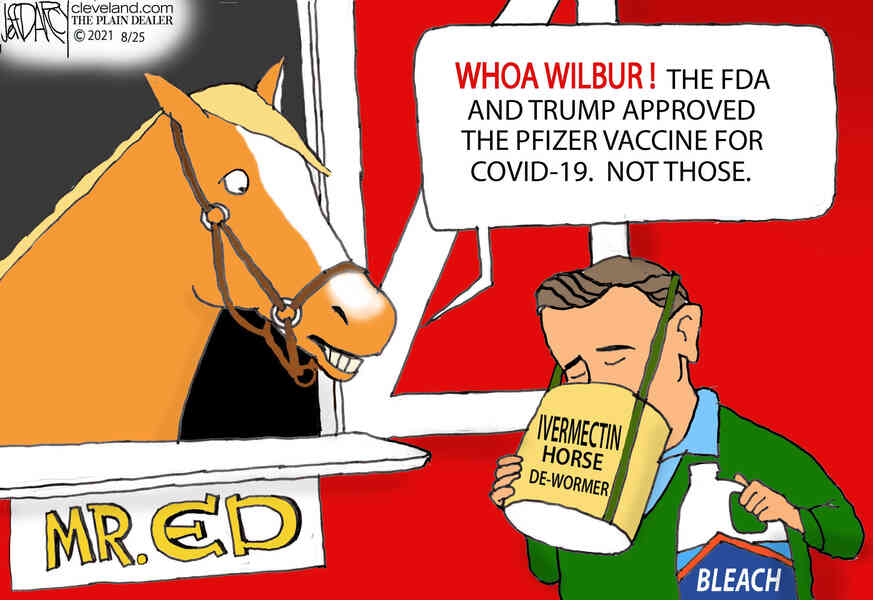Ivermectin Nobel Glory: Why Hide Its Power?
A Nobel Prize-winning drug sparks global debate—was its COVID-19 potential suppressed?

Behind the Veil
A drug hailed as a “miracle” for saving millions from parasitic diseases is now at the heart of a global firestorm. Ivermectin, celebrated with a 2015 Nobel Prize, has been thrust into a heated controversy: Was it deliberately sidelined during the COVID-19 pandemic? Social media buzz, particularly on X, claims powerful forces suppressed its potential as a treatment, branding it a “horse de-wormer” to discredit its human use. Yet, verified studies and global health records paint a complex picture—one of science, skepticism, and stakes that affect billions. Why does a drug with a decades-long safety record spark such division? And who stands to gain from keeping it in the shadows?
The Figure’s Light
Ivermectin’s story begins not with a person, but with a groundbreaking discovery by two scientists: William C. Campbell and Satoshi Ōmura. In the 1970s, Ōmura, a Japanese microbiologist, cultured bacteria from soil near a golf course, isolating a strain called Streptomyces avermitilis. Campbell, an Irish-born parasitologist at Merck, took Ōmura’s cultures and purified a compound called avermectin, which was later refined into ivermectin. By 1981, it was approved for veterinary use under the brand Mectizan, targeting parasites in livestock. Its human applications followed in 1987, revolutionizing treatment for river blindness (onchocerciasis) and lymphatic filariasis, diseases that plagued millions in Africa and Latin America.
The Nobel Prize in Physiology or Medicine, awarded on October 5, 2015, recognized Campbell and Ōmura for their “discoveries concerning a novel therapy against infections caused by roundworm parasites.” The Nobel Committee praised ivermectin’s “immeasurable” impact, noting its role in nearly eradicating river blindness in some regions. Over 3.7 billion doses have been administered to humans globally, earning it a spot on the World Health Organization’s List of Essential Medicines. Its safety profile, when used as prescribed, is well-documented, with side effects like nausea or dizziness being rare and mild compared to its benefits.
Campbell, now in his 90s, and Ōmura, a revered figure in Japan, became symbols of scientific triumph. Yet, their drug’s legacy has taken an unexpected turn, entangled in a modern medical mystery.
The Shadow Falls
The controversy erupted in 2020 when ivermectin was proposed as a potential COVID-19 treatment. An April 2020 Australian lab study found it inhibited SARS-CoV-2 replication in vitro, sparking global interest. By March 2020, small clinical trials began, with some reporting promising results. A 2021 meta-analysis of 20 randomized clinical trials (RCTs) suggested a 31% reduction in COVID-19 mortality with ivermectin use, and in Peru, mass distribution correlated with a 74% drop in excess deaths in 10 states over 30 days. These findings fueled claims that ivermectin was a cheap, effective solution, potentially a game-changer for a pandemic that killed millions.
But the science wasn’t settled. The Australian study used concentrations 20 to 2,000 times higher than safe human doses, raising doubts about real-world efficacy. A July 2021 paper, initially touting benefits, was withdrawn after flaws like duplicated patient records and statistical errors were exposed. Larger trials, like the 2024 PRINCIPLE study, found no significant benefit for COVID-19 recovery or hospitalization rates. The FDA and WHO, as of September 2021, issued strong warnings against using ivermectin for COVID-19, citing insufficient evidence and risks like overdose from veterinary formulations. The CDC reported a 163% spike in ivermectin poisoning calls by August 2021, driven by self-medication with animal-grade doses.
Amid this, a narrative took hold on platforms like X: Ivermectin was being “hidden” by pharmaceutical companies and health authorities to protect vaccine profits. Posts in 2021 and as recent as June 2025 claim the drug’s Nobel pedigree was downplayed, with media outlets like CNN and The New York Times mocked for calling it a “horse de-wormer.” A September 6, 2021, Facebook post, shared widely, read: “The creator of Ivermectin was awarded the 2015 Nobel Prize for its use in humans. Any journalist who refers to it as ‘horse dewormer’ is guilty of malpractice.” Another, falsely attributed to Campbell, claimed: “It cures many diseases, including COVID-19. The fake news and big pharma want you to live in fear.”
The allegations peaked in 2023 when Robert F. Kennedy Jr., a prominent vaccine skeptic, claimed on X that ivermectin was “destroyed” to protect a “$200 billion vaccine enterprise.” His post, dated June 21, 2023, garnered thousands of shares, amplifying distrust. No verified evidence supports claims of a coordinated cover-up, but the idea persists, fueled by distrust in institutions and ivermectin’s low cost (less than $1 per dose in some regions) compared to patented treatments like remdesivir.

Murmurs in the Dark
Public reaction has been a tug-of-war between hope and skepticism. On X, users like @iKOR_OG (June 4, 2025) called ivermectin’s demonization a “crime against humanity,” demanding “Nuremberg2” trials. Others, like @Skullnbonz3 (May 29, 2025), decried the “horse de-wormer” label, pointing to its Nobel Prize and human use. These posts reflect a broader sentiment: frustration with perceived media bias and institutional gatekeeping. A 2021 Reuters fact-check clarified that the Nobel was for parasitic diseases, not COVID-19, but this did little to quell the fervor.
Mainstream outlets like The Washington Post and USA Today countered in 2021, emphasizing the lack of robust evidence for COVID-19 use. The FDA’s September 3, 2021, statement was blunt: “You are not a horse. You are not a cow. Stop it.” Yet, this messaging backfired for some, who saw it as dismissive of ivermectin’s human legacy. In Peru, where mass distribution occurred in 2020, local health officials reported anecdotal success, but global health bodies like the WHO remained unmoved, citing inconclusive data.
Historical parallels emerge. The 1980s AIDS crisis saw similar desperation for unproven treatments, with patients turning to drugs like AZT before full trials. Ivermectin’s advocates argue it’s a victim of the same caution that delayed AIDS therapies. Critics, however, point to chloroquine’s failure in COVID-19 trials—promising in labs, ineffective in humans—as a cautionary tale.
The Cost Now
The immediate impact is a fractured trust in science. Ivermectin’s proponents, including doctors who prescribed it off-label, face scrutiny. In 2021, hospitals like Chicago’s Resurrection Medical Center resisted pressure to administer ivermectin, citing FDA guidelines. Meanwhile, prescriptions surged 2,400% by August 2021, per the CDC, straining pharmacies and fueling black-market sales. Overdoses, some fatal, were reported in cases where patients took veterinary doses, unaware of the concentrated formulas.
For Campbell and Ōmura, the controversy taints their legacy. Campbell, in an April 2020 quote, expressed cautious optimism about ivermectin’s antiviral potential but never endorsed it as a COVID-19 cure. Ōmura, in a 2021 paper, noted “clinical trial results have been and continue to be accumulated,” but admitted in vitro evidence was lacking. Their measured words contrast with the bold claims of supporters, yet their names are weaponized in the debate.
Economically, the stakes are high. Vaccines, a $200 billion market by 2023, were the cornerstone of pandemic response. Ivermectin, costing pennies per dose, threatened to disrupt this. No evidence confirms pharmaceutical collusion, but the perception persists, eroding public faith in health policy.
Unveiled Futures
What’s next for ivermectin? Ongoing trials, like Spain’s SAINT study, aim to clarify its role, but results remain mixed. A 2022 review in Biochim Biophys Acta suggested ivermectin’s antiviral properties deserve further study, but high-dose risks—seizures, coma—limit its appeal. If future RCTs prove efficacy, it could reshape global health, especially in low-income nations. If not, the controversy may cement ivermectin as a cautionary tale of hope outpacing evidence.
Unresolved questions linger. Why did early studies show promise, only to falter in larger trials? Is the distrust in institutions a symptom of broader failures in science communication? The cultural impact is undeniable: Ivermectin has become a symbol of resistance against perceived overreach, much like masks or vaccines. Its story reflects a deeper societal rift—one that science alone may not heal.
Final Revelation
Ivermectin’s journey from Nobel glory to pandemic pariah is a saga of hope, hype, and hard truths. Its proven power against parasites earned it global praise, yet its COVID-19 role remains unproven, mired in distrust and division. As trials continue and voices clash, one question burns: Is ivermectin a hidden cure or a dangerous distraction? Stay sharp with Ongoing Now 24.





